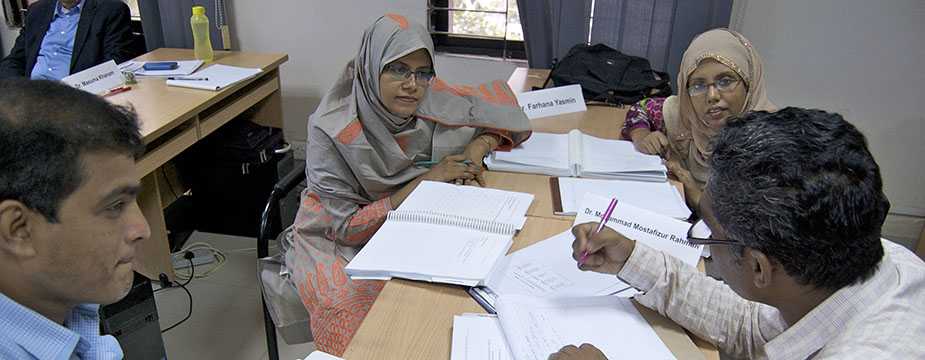IMPACT: About Us

Bangladeshi fellows design a hypertension program that focuses on improving quality of care.
What We Do
To address the world’s urgent need for skilled public health managers, CDC has developed an innovative program called Improving Public Health Management for Action (IMPACT). IMPACT is a fellowship program that works closely with partner countries to build a workforce of public health professionals prepared to translate science into action.
IMPACT provides fellows with experience in public health program planning, implementation, management, and evaluation through specialized, hands-on training, supervision, and mentorship.
Why It’s Important
Across the world, there is a shortage of public health managers, especially in low-to-middle resource countries. Without a global network of skilled managers to coordinate public health efforts – from prevention to outbreak response – we are all more susceptible to emerging public health threats.
Effective managers know how to translate research, theory, and scientific innovation into successful public health action. IMPACT graduates are trained to work alongside scientists to plan, implement, and evaluate public health programs, as well as to prepare for and respond to outbreaks.
How We Do It
IMPACT uses a service-based learning model. Fellows gain knowledge and skills through formal in-class training, on-the-job projects, and mentorship. The program has two tracks:
- Track 1: IMPACT Fellowship Program, a two-year master’s program for early career professionals
- Track 2: IMPACT Distinguished Fellows Program, a six-month program for senior level managers
IMPACT builds upon the success of two other CDC training programs:
- Field Epidemiology Training Program (FETP), a two-year, practice-based program for epidemiologists overseas
- Sustainable Management Development Program (SMDP), a now-retired program (1992-2013) designed to improve public health management overseas
Using the core principles and best practices of FETP and SMDP, IMPACT is a newly evolved management training program that focuses on learning through practice. To learn more about the program’s educational strategies and approach, please visit the IMPACT Learning Model page.
Where We Work
Prior to launching in a country, IMPACT conducts a readiness assessment. Once selected, IMPACT partners with the country’s Ministry of Health to adapt the program and ensure that it is relevant to the country’s needs. In the early years of the program, CDC provides an in-country Resident Public Health Advisor to manage the program. Internationally renowned trainers and CDC staff also visit the country to teach courses and assist with stakeholder engagement. Each year, the Ministry will take on additional responsibilities, until they have full ownership of the program. Their early involvement is, thus, very important to IMPACT’s sustainability.
In 2016, IMPACT launched pilot programs in Kenya and Bangladesh. The programs, though similar in framework, each have unique features. Please visit our Where We Work page to learn more. In Cambodia, the program is currently in the pre-implementation phase and will launch there in 2018.
The Global Health Security Agenda
The Global Health Security Agenda (GHSA) has challenged countries to speed progress toward a world safe and secure from infectious disease threats. In order to achieve this, countries are working to build capacity in key areas, including developing the workforce. IMPACT meets this challenge directly through its learning model.
A country with a strong public health management workforce will be better prepared to achieve GHSA goals:
- Prevent and reduce the likelihood of outbreaks – natural, accidental, or intentional;
- Detect threats early to save lives;
- Respond rapidly and effectively using multi-sectoral, international coordination and communication.
- Page last reviewed: August 31, 2017
- Page last updated: August 31, 2017
- Content source:


 ShareCompartir
ShareCompartir